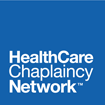Academic Honesty Policy
- Introduction
The Spiritual Care Association (SCA) maintains a Code of Ethics of which Integrity is one of its core values. It states, “Spiritual care professionals and providers behave in a trustworthy manner. They act honestly and responsibly both individually and as members of the organizations with which they are affiliated and employed.” Maintaining integrity extends to participation in courses offered by the SCA.
It is expected that each demonstrates integrity through maintaining academic honesty in the conduct of his or her studies and other learning activities at the Spiritual Care Association Learning Center. The maintenance of academic integrity and quality education is the responsibility of each student.
- Student Responsibilities
- Students are responsible for knowing and understanding the rules of Academic Honesty as outlined in this policy, to include fabricating information and data, cheating, facilitating academic dishonesty, and plagiarizing.
- Students are responsible for communicating with the instructor if they do not understand how the policy applies to a particular course or assignment. Students are responsible for understanding the meaning of academic honesty and plagiarism and well as the differences between a citation, giving credit, original writing, and plagiarism. Resources available include:
- What is Plagiarism? Mervyn H. Sterne Library. University of Alabama at Birmingham. http://www.mhsl.uab.edu/2009/plagiarism/102.html
- Welcome to the Plagiarism Tutorial, The University of Southern Mississippi. http://www.lib.usm.edu/legacy/plag/plagiarismtutorial.php
- Plagiarism Tutorial. Duke University. https://www.plagiarism.duke.edu/
- How to Cite Sources and Avoid Plagiarism. Kevin deLaPlante. https://www.youtube.com/playlist?list=PL32A9993FC82230C3
- All written work by students posted within a course must be original. All ideas or materials that are borrowed from other sources must have appropriate references to original sources. Any quoted material should give credit to the source and be punctuated with quotation marks.
- Instructor Responsibilities
- Course instructors are required to report any incidents that violate the SCA Academic Honesty Policy to the Director of Education for review. The Director of Education will consult with the Chief Operating Officer as may be indicated for more severe cases.
- In most cases, a program to correct the action will be assigned to the student and monitored by the instructor for compliance and completion.
- The instructor will report to the Director of Education the students’ fulfillment of the corrective action.
- Consequences
- Depending on the severity of the violation. reoccurrences by the student, or failure to follow the instructions to remedy the action, consequences may include failure of the assignment and possible failure of the course.
- If a student is removed from the course for violation of the Academic Honesty policy, no refund is available. He or she may retake the course; however, the student will be expected to repurchase the course.
Payment, Refunds, and Extensions Policy
- Payment for Course
Payment in full is due upon purchase.
- Refunds
No refunds will be issued with the exception of serious illness of the participant with a physician letter, or a death in the participant’s immediate family.
- Course Duration
You will have full access to the course(s) purchased for a total duration of six months. No further access to the material/course will be available after 6 months. The course automatically closes at that point.
- Grading
- There will be one test at the end of each course. Participants will receive a Pass/Fail notification after completing the test. Participants have a total of three attempts to pass the test with a score of 80% or above.
- After the third failed attempt, the participant will receive a “Fail” status on the particular course. If you wish to take the course again, you must re-purchase the course again.
- There are no reduced fees for re-taking a course.
- Assignment Extensions
The courses require work to be completed weekly and are due on the announced date for each week. Students are expected to finish their assignments as indicated in the course requirements. If a student needs to request an extension, he or she is expected to contact the course instructor in a timely manner. Approving an extension is done at the discretion of the instructor.
Student Certificate Privacy Policy
The Spiritual Care Association maintains the privacy of student completion or non-completion of a course. Certificates or failure to complete the course are not released to the student’s employers. Students are responsible for ensuring that their employer, if necessary or requested, receives a copy of their certificate of completion or notification of course failure.

